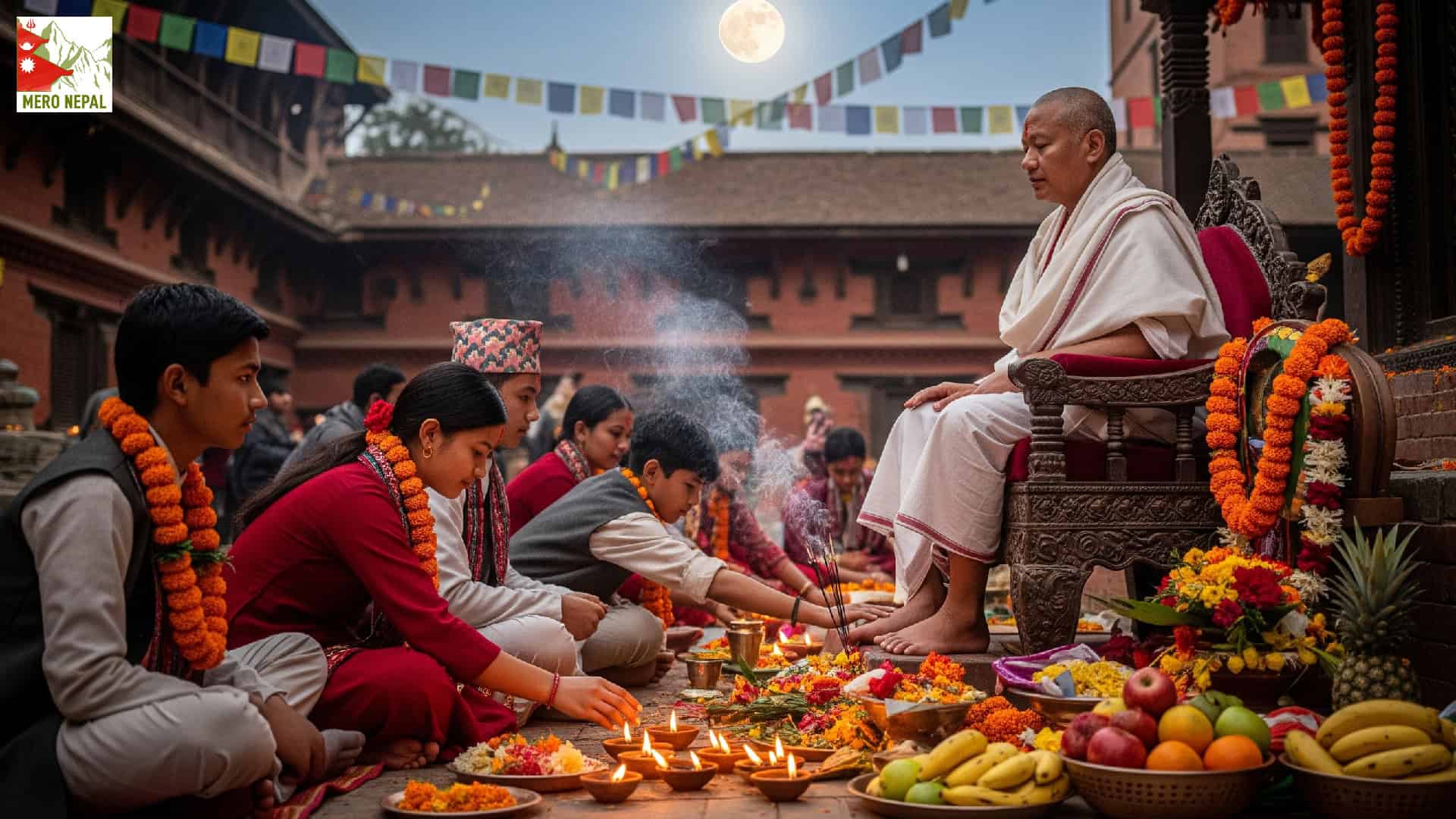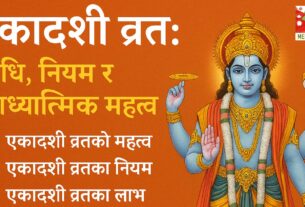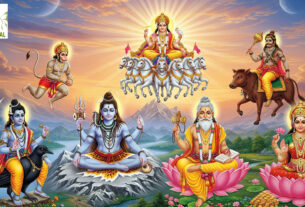Introduction
Guru Purnima is a unique festival celebrated not only in Nepal but across South Asia. It is a day dedicated to expressing respect, gratitude, and reverence toward teachers, mentors, and spiritual guides. Observed on the full moon day of the Hindu month of Ashadha, this festival is considered the day to honor those who illuminate the path of knowledge and wisdom in life.
Historical and Religious Background
-
Birth of Sage Vyasa: In Hindu tradition, this day is also known as Vyasa Purnima, marking the birth of Sage Vyasa, the author of the Mahabharata. It is regarded as the day when the guru tradition was formally recognized.
-
Buddhist Tradition: In Buddhism, this day commemorates the occasion when Lord Buddha gave his first sermon, emphasizing the role of a spiritual guide in enlightenment.
-
Guru–Shishya Tradition: In Vedic culture, a guru is considered essential for knowledge, often viewed as a living embodiment of the divine. Honoring a guru is seen as a sacred duty.
Role and Importance of a Guru
A guru is not just an academic teacher but a life guide:
-
Educational Guru: Imparts knowledge, cultivates critical thinking, and shapes societal values.
-
Spiritual Guru: Guides disciples in meditation, dharma, and self-realization.
-
Life Mentor: Provides lifelong inspiration, ethics, and moral direction.
The influence of a guru shapes the disciple’s life, fostering discipline, positivity, and ethical growth.
Traditions of Celebrating Guru Purnima
-
Devotees bathe early in the morning and dress in clean, traditional attire to visit their gurus.
-
Offerings such as flowers, fruits, garlands, and dakshina (monetary gift) are presented.
-
Schools, monasteries, and temples organize special ceremonies and cultural programs.
-
Disciples may also present honor certificates or gifts to express gratitude.
Social and Spiritual Significance
-
Expression of Gratitude: Disciples show respect and thankfulness toward their teachers.
-
Reinforcing Knowledge and Discipline: Emphasizes the importance of learning, ethics, and personal growth.
-
Strengthening Society: Teachers and gurus guide individuals, thereby contributing to a morally and spiritually strong society.
Guru Purnima in Modern Times
Even in today’s digital age, the importance of the guru remains unchanged:
-
Students give flowers, greeting cards, and gifts to their teachers.
-
Spiritual discourses are streamed online for wider reach.
-
Social media platforms help share teachings and inspirational quotes from gurus.
Mero Nepal App and Guru Purnima
The Mero Nepal App makes it easy to stay updated about festivals and auspicious dates:
-
Notifications for Guru Purnima, Janai Purnima, Teej, Dashain, Tihar, and more.
-
Easy access to rituals, traditions, and cultural explanations.
-
Articles and news related to Nepali culture.
Conclusion
Guru Purnima is more than a religious festival—it is a celebration of the guru–disciple relationship that illuminates knowledge, spirituality, and morality. Observing this day encourages gratitude, discipline, and respect for wisdom.
Honoring gurus preserves a timeless tradition that continues to guide and inspire future generations.





